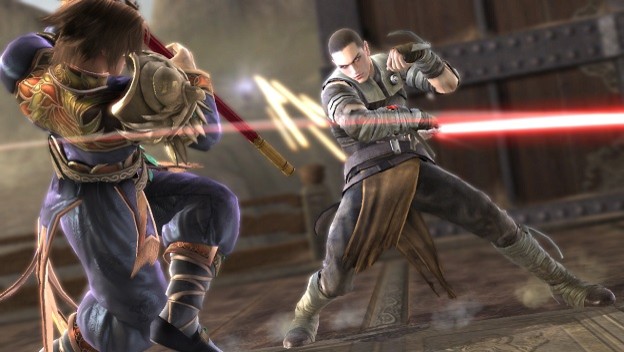My wife and I love to settle in at the end of the night and watch a show together. Last month we decided that we would start Breaking Bad because neither of us had ever seen it, and it’s pretty much universally acclaimed. As all of you who have seen the show know, it’s totally engrossing early on, and hard to watch toward the end. The emotion-fueled violence got to me and disturbed me in a way that no show ever has, and I really didn’t enjoy it. There was one scene in particular (no spoilers, I promise) where I watched several people in prison get killed; the very first one is held from behind, crying out in panic and pain, as three people stab him to death. I watched in horror as all three assailants quickly, mercilessly, repeatedly punched holes in the man’s body until he stopped moving.
Needless to say, I was horrified. I’m sure many of you know exactly the scene I’m talking about and took in stride, but I’m an audio-sensitive empath, and that depiction of suffering really threw me off. My wife could tell. Disturbed and frustrated, I spat out an angry remark and fast-forwarded the scene and had to sit with the show paused for a moment before I was fully recollected and able to continue with the episode. Later on in the evening when we were both just hanging out, I loaded up Black Ops 3 into my PS4 to play some Domination. My wife looked over at me with a confused look on her face and asked, “Is this the game where you kill people?”
Gee, I thought to myself, isn’t this ironic? As I spent some time trying to explain to her how shooting games and fighting games were different from violent movies and shows, I found that it was pretty hard to talk about with someone with no background or interest in competitive gaming. I ended up settling with an analogy that I think is rather useful, and rather true: fighting games are like a game of chess, and shooting games are like a game of hide-and-seek.

To the uninitiated, watching two competitors go at it in a fighting game looks a lot like two, highly detailed, computer-generated people beating each other to a pulp. What you don’t realize, though, especially in games like Soul Calibur and Tekken , is that there is a tremendous amount of strategy and skill that go into every moment of offense and defense. I liken it to a game of chess where, depending on your available units (or your moves set), you’re constantly changing your strategy depending on your distance from your opponent and on your opponent’s actions. The game is equal parts analyze, plan, execute, and adjust. Like any game, there will be players who play with no strategy at all, but to those who have mastered the systems and styles, there is no greater outlet for creative aggression.
Shooting games are basically highly complex, online games of hide-and-seek. Hide-and-seek is mysterious in its universality, and even babies learn to love the game, reveling in the suspense and mystique of a parent’s face hidden behind their hands. As a child there is no greater thrill than discovering a well-hidden competitor and then proving that you’re faster and more resourceful than they in a chase. Video games afford us avatars faster, stronger, and far more agile than we could ever be, and you get to tag your friends with all kinds of loud and flashy toys.
To me, the most meaningful differentiating factor that sets competitive games apart from violent movies and shows is the fact that your friends, or at least people you can hear and speak with, are on the receiving end of your virtual aggression. You don’t hear panicked screams and desperate cries; instead you hear things like, ”Oh, you $&!# I almost captured your base! I’m coming after you now.” With gaming, intense portrayals of suffering are replaced with innocent jeering and “yo mama” jokes. In a Call of Duty match there is no suffering, only rivalry, and a shot to the head is simply our way of saying, “You’re it.”
